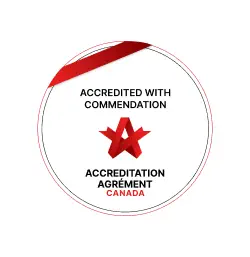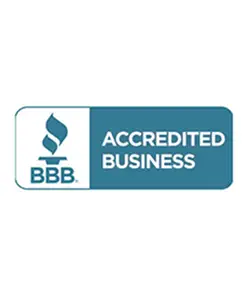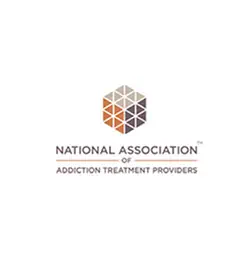 Success Rate:
Read Now
Success Rate:
Read Now
 Success Rate:
Read Now
Success Rate:
Read Now
We understand the challenges of prescription drug dependence and we can help you find the support and personalized treatment programs you need. Let us be your ally in this journey towards lasting recovery and start living again!

Prescription medications serve legitimate medical purposes every day across Canada. Doctors prescribe opioids for pain management, benzodiazepines for anxiety disorders, and stimulants for ADHD to help millions of people manage serious health conditions.
However, prescription drug addiction can develop when these same medications get misused or taken differently than prescribed. What starts as following the doctor’s orders can gradually shift into dependency patterns that feel impossible to control.
About 7% of Canadians who use psychoactive prescription medications report problematic use. The numbers keep climbing as more prescriptions get written each year, particularly for pain management and mental health conditions.
Prescription drug addiction gets progressively worse without professional treatment. Going cold turkey or trying to detox alone can trigger dangerous withdrawal symptoms, including seizures and severe depression. However, recovery is achievable when individuals receive comprehensive care from qualified addiction specialists who understand the unique challenges of prescription medication dependency.
At the Canadian Centre for Addictions, we take pride in our rehab accreditation, which ensures that our services meet the highest standards of care, providing you with effective and safe treatment.

Through our work alongside Accreditations Canada, we have earned the seal of approval from one of the largest and most respected organizations in health and patient care. They proudly endorse Canadian Centre for Addictions and we proudly carry their certification as a promise of quality care to our clients.

As a premier and professional rehabilitation facility, we are recognized as a top business in our field by the Better Business Bureau. Our dedication to operating as a legitimate and honest addiction treatment center helps us stand out to our community and those we wish to help.

As a member of this respected Canadian organization, we are part of a community of leaders in addiction specialists who put clients first. This helps us stay on top of trends and be a part of a movement of passionate professionals who truly want to make patient care a priority.
Freedom from addiction requires a continued connection to recovery. Our addiction centres offer aftercare addiction services accessible to all program graduates for life and available anywhere in North America. Canadian Centre for Addictions’s Lifetime Aftercare is an important tool that helps you maintain your new healthy life.

Knowing that you’re not alone is a crucial aspect of the journey to authentic addiction recovery. Group Counselling and Therapy is one of the many levels of addiction treatment care that can help people connect more directly with their addiction and the support needed to transition to the best version of yourself.

Canadian Centre for Addictions’s rehab centres help individuals understand their addiction and the healthier coping strategies available by engaging them in individual counselling with our Certified Addiction Counselors, Psychotherapists and other Mental Health Professionals.

Canadian Centre for Addictions’ inpatient rehab facilities in Cobourg, Ontario offer a safe, comfortable, 24/7, Medically Supervised Program that provides all of the professional addiction services needed to guide you to a healthy recovery. Providing Withdrawal Management and Detox Services as well as one-on-one Group Therapy treatments by Certified Addiction and Mental Health professionals. Canadian Centre for Addictions will explore many different treatment modalities to help develop and cultivate the tools needed to address and process the underlying issues that led to addiction in the first place.

Having a loved one who refuses to acknowledge their addiction or is in denial about it entirely can leave the family feeling helpless. Canadian Centre for Addictions offers Intervention Counselling from trained addiction professionals who will provide the coaching and facilitation necessary to have your loved one accept addiction help that will change their life.

Working one on one with a Certified Addictions Professional, Canadian Centre for Addictions’s addiction rehab programs explore outpatient treatment modalities that best resonate with you to develop healthier coping mechanisms that will address the underlying issues that led to addiction.

Several key factors influence how prescription drug abuse develops and, more importantly, how treatment professionals design effective recovery plans. Knowing these factors helps addiction specialists create personalized approaches that address each person’s unique circumstances and needs.

If you’re going through a tough time with prescription drug addiction, you don’t have to face it alone. Our Luxury Private Rehab Centre in Port Hope and Cobourg are quiet, comfortable places in Ontario where you can take a real break and start fresh.
In Port Hope, our private rehab centre feels more like a peaceful retreat. Some rooms have calming lake views, a fireplace, and multiple decks to relax on. It’s a space to breathe, slow down, and focus on getting better. And with fresh, 5-star meals made by our chef every day, you’ll be well taken care of, body and mind, during your recovery journey.
Over in Cobourg, the vibe is just as warm and welcoming. It’s a place where you’ll be supported by people who truly care about your recovery from prescription drug addiction and other substance dependencies. We’re here to listen, guide you, and help you feel more like yourself again.
Whether you’re looking for space to reflect or need professional support to move forward, our rehab treatment program centres in Port Hope and Cobourg offer the calm, care, and comfort you need to start your treatment and recovery process with confidence. These Ontario facilities provide the perfect environment for healing, combining luxury amenities with proven therapeutic approaches that address the unique challenges of prescription drug addiction in rehab recovery.
Withdrawal symptoms vary significantly depending on which prescription medications you’ve been using and how long dependency has developed. Understanding what to expect helps reduce anxiety about the process, and prescription drug rehab centers with supervised programs provide medical support to manage these symptoms safely.

Opioid withdrawal often feels like severe flu symptoms combined with intense psychological distress. Physical symptoms include:
The psychological symptoms prove equally challenging: intense anxiety, depression, and overwhelming cravings that can last weeks.
Benzodiazepine and other depressant withdrawal can be medically dangerous without supervision. Symptoms include:
The most concerning risk involves potential seizures, which can occur days after stopping use.
While typically not medically dangerous, stimulant withdrawal creates profound psychological challenges:
The most concerning risk involves potential seizures, which can occur days after stopping use.
Several elements influence how intense withdrawal becomes. Higher doses and longer usage periods typically produce more severe symptoms, while age, overall health, and use of multiple substances simultaneously all impact the experience. Mental health conditions like depression or anxiety often worsen during withdrawal, creating additional challenges that compound physical discomfort.
However, medical supervision during prescription drug addiction treatment transforms withdrawal from potentially dangerous to manageable. Healthcare teams provide medications to ease discomfort, monitor vital signs, and address complications immediately. Beyond physical care, they offer emotional support during the most difficult phases, helping you understand that symptoms are temporary and recovery is achievable.
Did not show improvement after
The Canadian Centre for Addictions
Program
Presented in Normal ranges at start
of The Canadian Centre for Addictions
Program
Showed significant improvement after
The Canadian Centre for Addictions
Program
The most common prescription drug addictions involve opioids (like oxycodone and fentanyl), benzodiazepines (like Xanax and Ativan), and stimulants (like Adderall and Ritalin). Opioids prescribed for pain management account for the highest number of addiction cases, followed by anxiety medications and ADHD treatments.
Warning signs include taking medications more frequently or in higher doses than prescribed, seeking prescriptions from multiple doctors, running out of medication early, and showing mood changes when unable to access pills. Physical symptoms might include drowsiness, confusion, or hyperactivity, depending on the medication type.
A comprehensive rehab treatment program typically begins with medical detox to safely manage withdrawal symptoms, followed by individual and group therapy sessions. You’ll work with counsellors to identify triggers, develop coping strategies, and address underlying issues that contributed to your addiction. Most programs also include family therapy and aftercare planning.
Professional prescription drug addiction treatment significantly improves recovery outcomes compared to attempting recovery alone. Success rates are highest when patients complete their full program and participate in aftercare services. The combination of medical supervision, therapy, and ongoing support provides the strongest foundation for long-term sobriety.
The Canadian Centre for Addictions operates specialized treatment facilities in Ontario, including our luxury private rehab centres in Port Hope and Cobourg. Both locations offer comprehensive inpatient and outpatient programs with medical staff experienced in prescription drug dependency, individual and group therapy, and extended aftercare support to ensure long-term recovery success.
Contact Us
Start Getting Better Now
Fill out the below form and get in touch with
a treatment specialist who can help